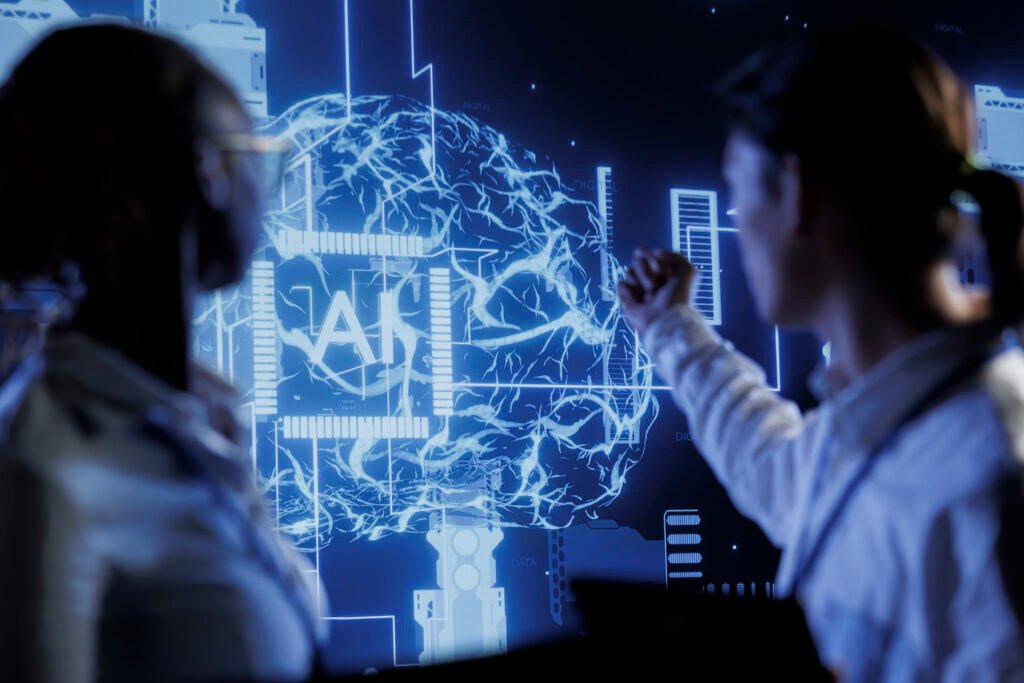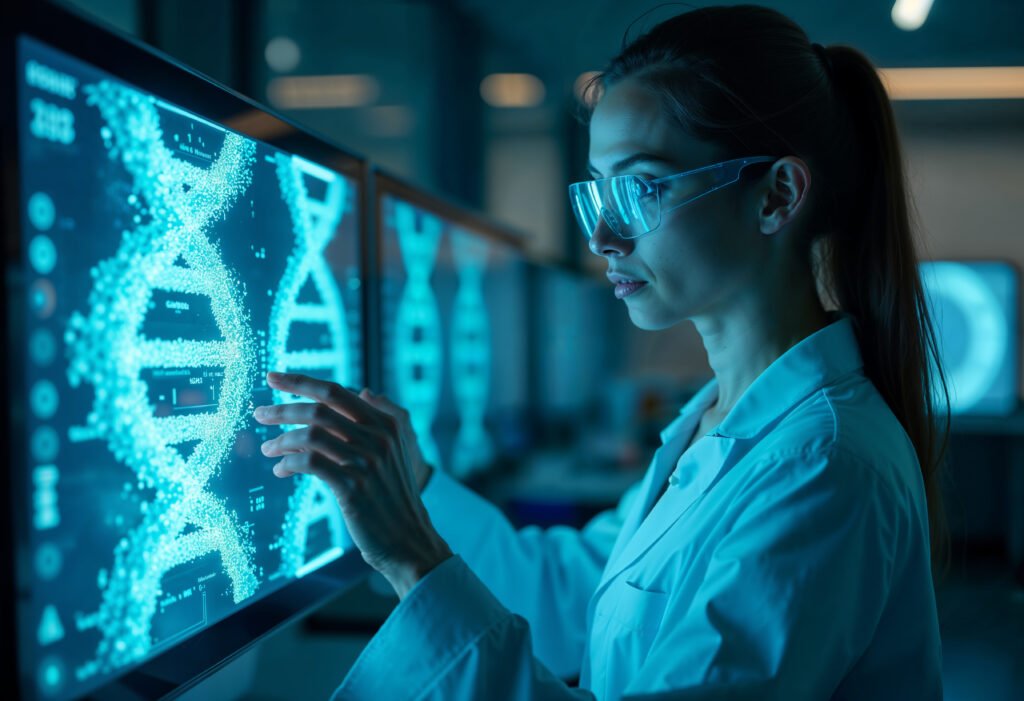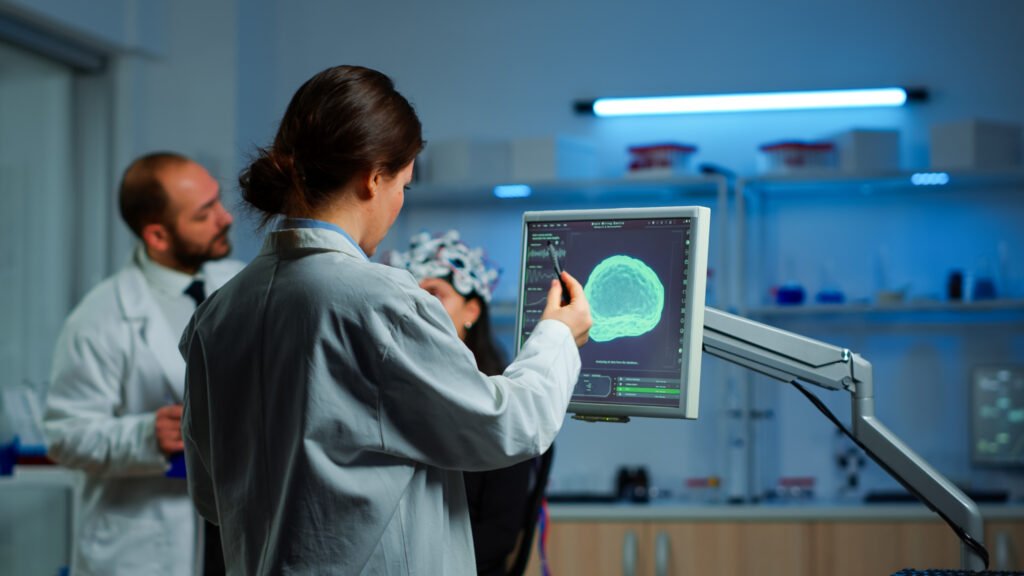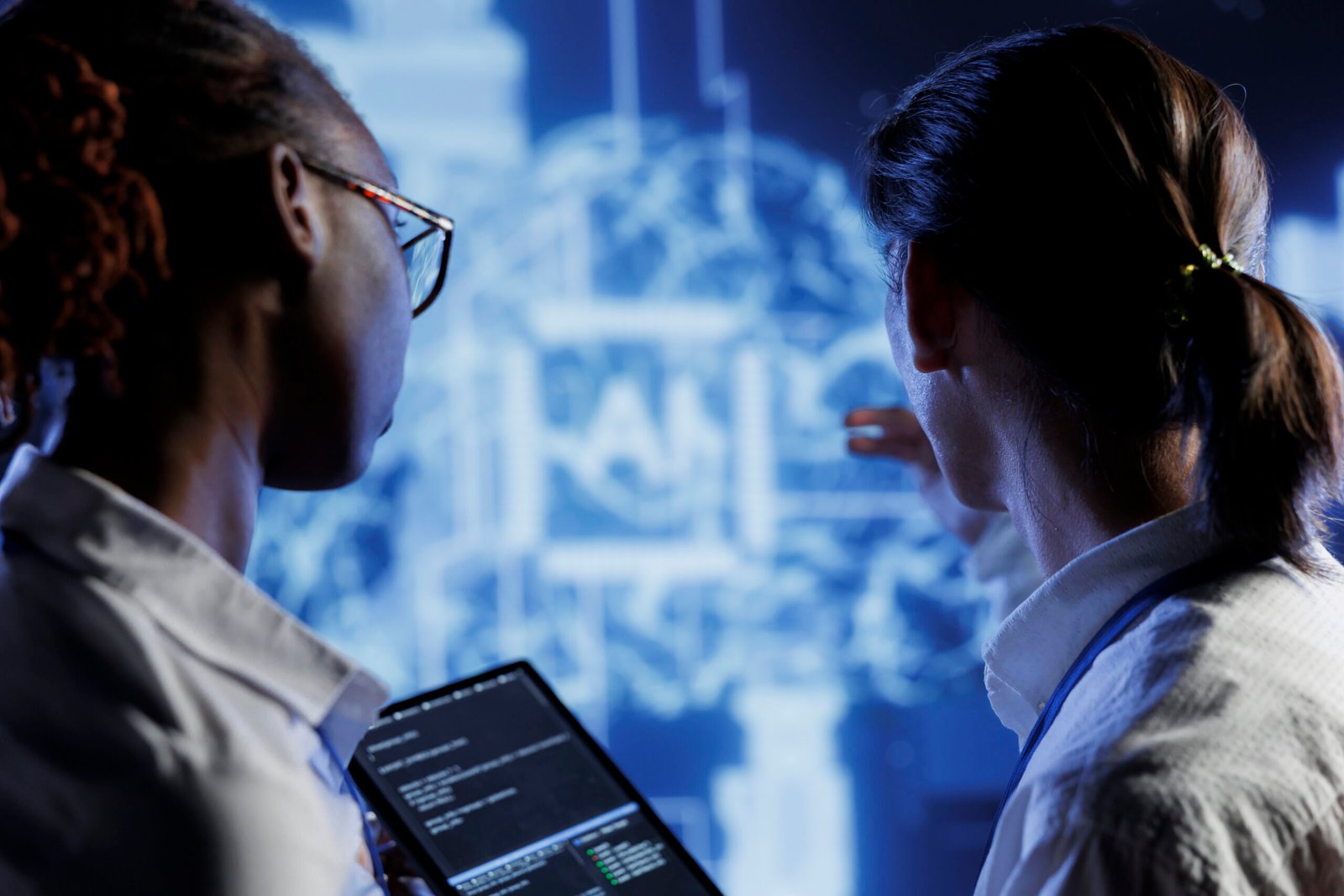Aging is universal—but it’s also increasingly hackable. Thanks to remarkable advances in AI in longevity research, what once seemed like science fiction is now becoming everyday science. In 2025, researchers are not just studying aging—they’re actively decoding and combating it, using artificial intelligence as their most powerful tool.
From identifying aging biomarkers to accelerating the discovery of life-extending drugs, AI is helping us leap from the lab bench to real-world solutions faster than ever before.
Let’s take a look at how AI is transforming anti-aging science—and why your healthspan may soon outlast your expectations.
What is AI in Longevity Research?
Simply put, AI in longevity research means using artificial intelligence to better understand how and why we age—and to develop interventions that can slow, stop, or even reverse that process.
This includes:
- Predictive modeling of age-related diseases
- AI-assisted biomarker discovery
- Machine learning to identify genetic or cellular patterns of aging
- Drug discovery pipelines that find compounds to promote healthy aging
- Personalized health insights based on big data
In 2025, AI for anti-aging isn’t just theoretical—it’s already producing tangible results.

How AI is Transforming Anti-Aging Science
1. Decoding the Biology of Aging with Machine Learning
Aging is complex—it involves genes, proteins, environmental factors, and lifestyle. Traditionally, understanding how these elements interact took decades. Now, machine learning in aging research can analyze millions of biological data points in seconds.
AI tools are being used to:
- Map the genetic and epigenetic signatures of aging
- Identify cellular damage caused by oxidative stress or inflammation
- Predict biological age versus chronological age
Companies like Deep Longevity and Gero use deep learning to train algorithms on aging biomarkers such as DNA methylation patterns and blood chemistry, offering people personalized reports and insights.
2. AI-Powered Tools for Extending Lifespan
In the lab, AI is already identifying new targets for life-extension. In one study, AI helped researchers discover 12 new compounds with potential to extend life—one of which delayed aging in mice by 20%.
These AI-powered tools for extending lifespan do things like:
- Analyze how specific genes respond to interventions
- Model long-term effects of diet, drugs, and exercise
- Forecast how different treatments work across populations
In 2025, we’re not just relying on trial and error. AI is giving us predictive control over the science of longevity.
AI in Drug Discovery for Longevity
Drug development is traditionally slow and expensive—but AI is changing that dramatically.
AI in drug discovery for longevity uses data mining and neural networks to:
- Predict which molecules will bind to age-related targets
- Simulate how drugs will work in the human body
- Screen thousands of compounds quickly and cost-effectively
Companies like Insilico Medicine and BioAge are using AI to discover and develop new anti-aging compounds with remarkable speed. In fact, some AI-discovered drugs have already entered clinical trials—an incredible milestone in the quest for longer, healthier lives.

Personalized Longevity Treatments Using AI
One of the most exciting developments is personalized longevity treatments using AI. No two people age the same way, and AI helps account for that.
Imagine getting a custom health plan generated by AI after analyzing your:
- DNA and gene expression
- Gut microbiome
- Blood markers
- Sleep, activity, and diet data from wearables
These AI-driven insights can suggest:
- The best supplements and medications
- Ideal diet and exercise routines
- Early alerts for age-related disease risks
In other words, AI becomes your personal longevity coach—tailoring health decisions to your unique biology.
Predictive AI for Age-Related Diseases
Aging is the #1 risk factor for many serious conditions: heart disease, Alzheimer's, diabetes, and cancer. In 2025, predictive AI for age-related diseases is helping detect these problems earlier—and intervene faster.
For example:
- AI tools can scan medical histories and imaging to detect early signs of cognitive decline.
- Predictive models can forecast frailty or cardiovascular issues years in advance.
- AI-assisted diagnostics can alert doctors before symptoms even appear.
This early detection means treatments can begin before disease causes irreversible damage—adding both years and quality to life.
Real-World AI Tools in Longevity: From Lab to Life
So how are these tools being used outside research labs?
Here are a few real-world examples of artificial intelligence in aging being applied in daily life:
- Longevity calculators: AI apps that estimate your biological age and suggest changes.
- Smart wearables: Devices that use AI to optimize sleep, recovery, and metabolic health.
- Digital therapeutics: AI-powered programs offering mental health support, memory exercises, and anti-stress tools.
- Precision supplements: Platforms that design custom nootropics and nutraceuticals based on your biometrics.
As AI becomes more accessible, these tools are rapidly moving from labs into clinics—and even homes.
Future of Aging and Artificial Intelligence
The future of AI and longevity isn’t just about living longer—it’s about creating a world where people live healthier, more vibrant lives well into old age.
Here’s what the next few years could bring:
- AI-guided stem cell therapies to repair aging tissues
- Whole-body digital twins to simulate aging and optimize treatment
- Real-time health dashboards powered by AI and biosensors
- Global longevity platforms that democratize access to life-extending interventions
With the support of AI, scientists are aiming not just to delay death—but to compress morbidity, meaning we stay well until the very end.

Challenges to Overcome
Of course, there are hurdles:
- Data privacy concerns with health data
- Regulatory issues with AI-based diagnostics
- Bias in algorithms trained on non-diverse datasets
- Ethical concerns over who gets access to longevity tech
As AI in longevity research grows, ensuring equity, safety, and transparency will be crucial.
Final Thoughts: Why AI Is the Engine of the Longevity Revolution
In 2025, the dream of defeating aging is no longer a distant fantasy. With AI at the center, we’re rapidly transforming how we understand, manage, and enhance the aging process.
Whether it’s creating personalized treatments, discovering new life-extending compounds, or preventing disease before it strikes, artificial intelligence in aging is changing the game.
So if you're thinking about your future, consider this: The tools that will help you live better and longer may already be in your pocket—or in the cloud.
Key Takeaways
- AI is revolutionizing longevity research, making it faster, cheaper, and more personalized.
- From drug discovery to diagnostics, AI is involved at every stage of anti-aging science.
- In 2025, AI-powered tools are moving from the lab to real-world applications—helping people make smarter health decisions every day.








